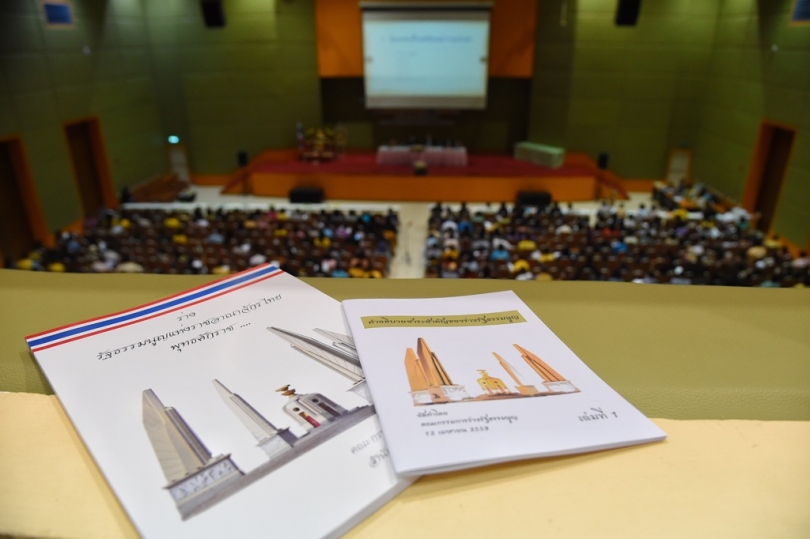Next two weeks are crucial to legitimacy of charter draft

Yesterday marked the second time that the newly formed group of scholars and prominent political figures known as the Platform of Concerned Citizens (PCC) have spoken out about the country’s political future.
When the referendum law was promulgated a few months ago, the PCC expressed serious concerns about strict restrictions it placed on debate of the charter draft content. As the vote draws near, the concern has intensified over a lack of transparency in the whole referendum process, where tight control is apparently being applied by authorities in a bid to prevent the worst-case scenario of the charter draft being voted down.
Key government figures including veteran legal expert Deputy Prime Minister Wissanu Krea-ngam have repeatedly explained that if the current draft fails to pass, the interim charter would have to be amended to pave the way for another drafting process.
With such a firm stance from the government, the calls from scholars and prominent politicians now go beyond the pre-referendum process and touch directly on the heart of the issue: the lack of public participation in the charter drafting process, which in turn gravely undermines the legitimacy of the proposed supreme law itself.
Besides calling for free and fair debate ahead of the referendum, the PCC also called for information on alternatives in case it fails to pass, so as to help people make better decisions at the referendum. Most importantly, the group has called for any fresh drafting process to be genuinely inclusive and constructive rather than the exclusive preserve of the powers-that-be.
Since the CDC was appointed to draft the charter nine months ago, people from various sectors have voiced concern over the lack of participation in the process. Those concerns grew after the implementation of the referendum law’s strict restrictions on freedom of expression and ambivalent statements from the Election Commission.
As a result, the legitimacy of this present draft is being seriously questioned, to the point that prominent figures, including Democrat Party leader Abhisit Vejjajiva, have predicted that if the highly divisive draft passes the vote, a new conflict could arise.
Political experts in the PPC ranks have pinpointed the heart of the issue, and the powers-that-be would be wise to heed their recommendations before it is too late.
With the government enjoying full and unchallenged authority, the charter draft may well pass the referendum. But without widespread acceptance its legitimacy would be undermined.
Although time is short, the government and the National Council for Peace and Order still have room to heed the group’s calls and correct the missteps. This could start with their support for free and fair discussion during the next two weeks, and assurance that any fresh drafting process will be inclusive of all sectors of society.
Without that shared feeling of ownership in the highest law that will govern our lives, any claim of legitimacy for the charter will ring hollow. Worse still, it could sow the seed for fresh conflict that plunges Thailand into deeper division.
RELATED
